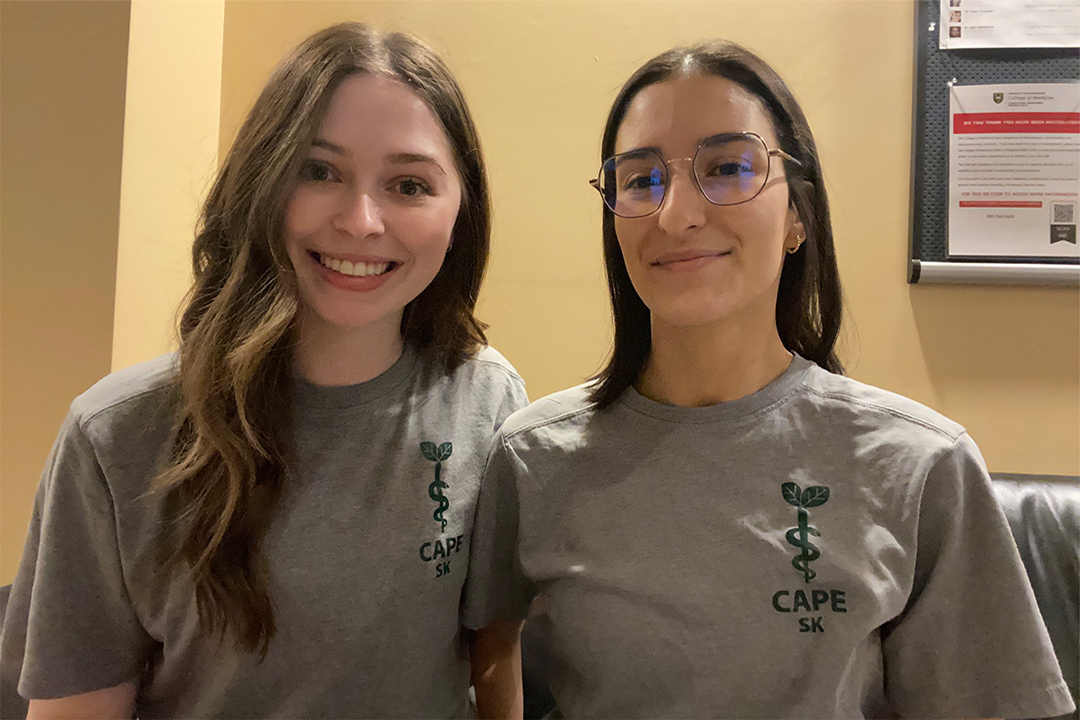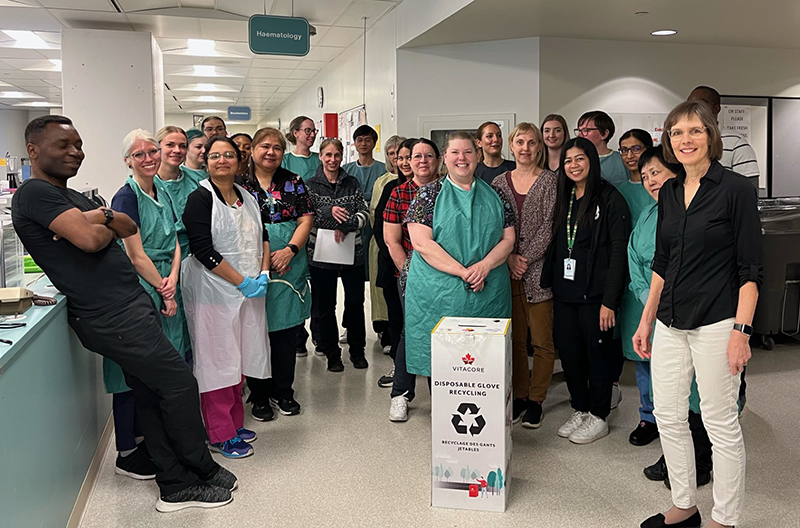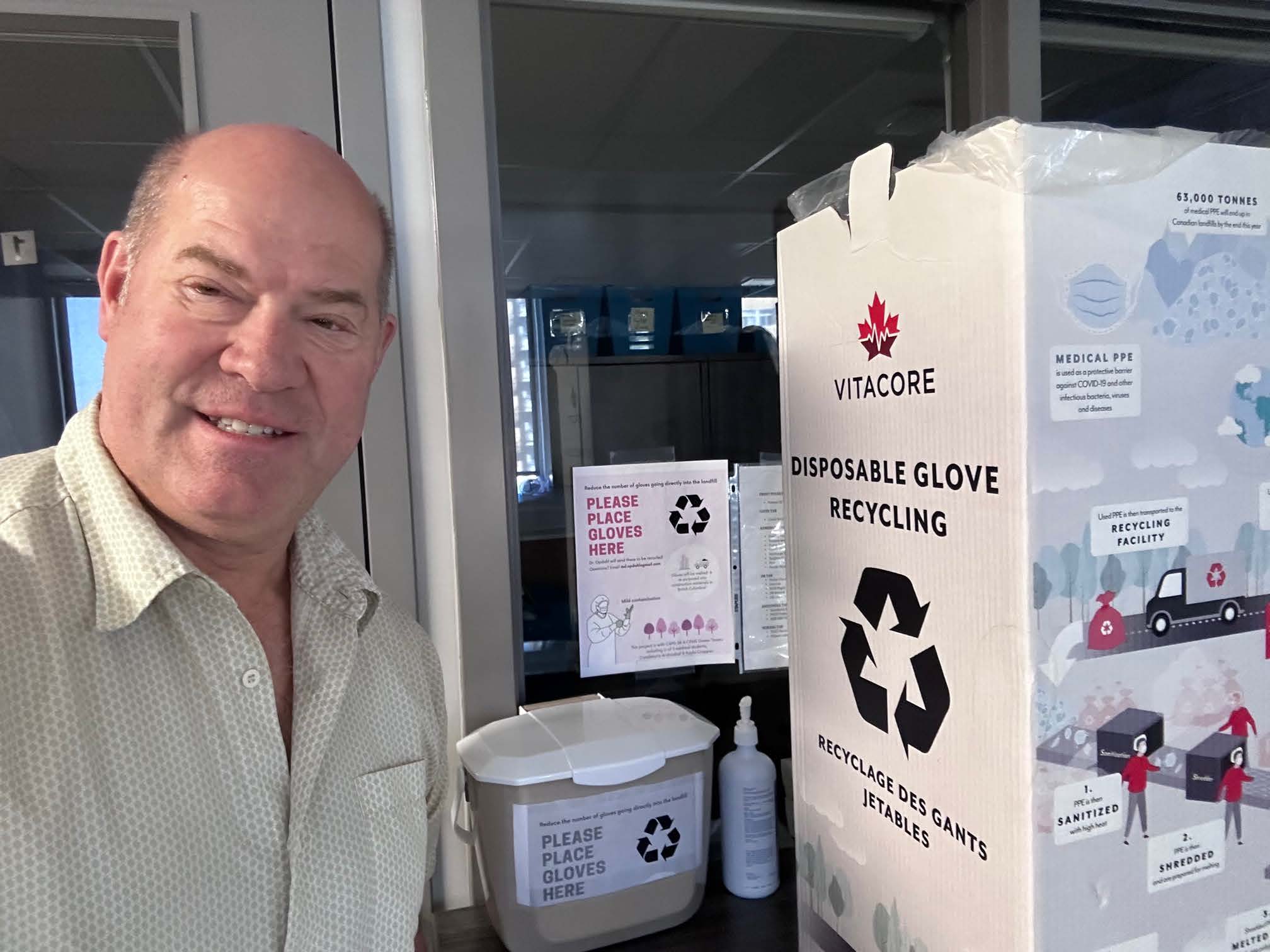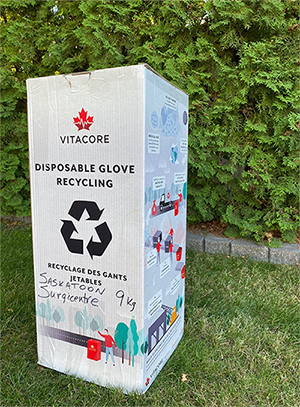
Small actions: Greening health care one glove at a time
After a record-breaking summer both in terms of heat and fires, it becomes increasingly hard to ignore the presence and impact of climate change.
By Candelaria Aristizabal Londono & Kayla CropperAs learners, we already see the system being challenged with complications resulting from these climate events. Asthma and congestive heart failure exacerbations, along with heat stroke deaths, have increased and are likely to continue rising due to the ongoing increase in summer temperatures and fire frequencies.

The relationship between climate change and healthcare is circular. Climate impacts patients' health and healthcare has an impact on climate. In fact, if healthcare were a country, it would be the fifth largest polluter in the world. Although much of the resources used in healthcare are necessary, there are many ways to mitigate healthcare's impact on climate.
Climate advocacy is something that we are both passionate about. Not only have we been exposed to the impacts of climate change and pollution through our medical education, but we have also been fortunate enough to meet several climate advocates in the medical field, who have highlighted the importance of taking action.
Dr. Henrike Rees (MD), a pathologist at Saskatoon City Hospital, started a glove recycling program in her pathology lab. She began the project with the hope of raising awareness about the need for climate action amongst her co-workers. She wanted the staff to see how small actions can help to change the way we do things, and more importantly, that we all need to find solutions to reduce healthcare’s carbon footprint. Dr. Rees’ commitment to improvement and her excitement about the project sparked our desire to get involved.

Her enthusiasm also inspired Dr. Murray Opdahl (MD), a family and sports medicine specialist to join and expand the project. With Dr. Opdahl’s support, the project has now been initiated at two additional sites: the Surgicentre and Venture Rehabilitation in Saskatoon. The project’s expansion was made possible with the help of the Student Medical Society of Saskatchewan (SMSS), Canadian Federation of Medical Students – Health and Environment Adaptive Response Task force (CFMS HEART) and the Canadian Association of Physicians for the Environment (CAPE).
Since the project was initiated, we have been able to defer over 144 kilograms of medical gloves from the landfill and redirected them to a recycling facility that converts them into construction materials. Although small in scale, this project serves as an example of one way we can contribute to reducing healthcare’s climate impact.

Climate impacts the health of our patients and as a result, we recognize the need to advocate for a more sustainable system. By participating in projects such as this one, we have had the opportunity to interrupt the circular relationship between climate and healthcare. Not only are we working to decrease the impact of healthcare on climate but we are consequently working to reduce the effects of climate on patient health.
As students, this project has served as a reminder of the impact of small actions and the possibility of making positive change. Despite being small-scale, we have witnessed an inspiring chain reaction in our medical community and have seen an increasing interest in greening healthcare as a result.
After this record-breaking summer, we remain inspired by the enthusiasm and determination of this community. We recognize that medicine and patient care go beyond the role of diagnosis and management and that advocating for issues such as climate change has the potential to benefit our patients and the patients of the medical professionals that are to follow.
